One of the pitfalls of being human is the many perceptual traps that can ensnare us. Spotting an object in water is difficult because of refraction; our ability to estimate the lengths of lines is hampered by nearby objects. Colors surrounding an object affect how we perceive it.
For the past five hundred years, a perceptual trap has gained momentum. This trap starts simply: we see civilization around us, and that it provides for us, and we assume that it will always be that way, even if we make changes. So greedily we demand as much as possible for ourselves and ignore the consequences of those acts.
More than a political movement, this is a social movement based on the wishful thinking of people who are not engaged in maintaining the civilization itself. They view society as like a supermarket: you take what you want, pay your money, and worry about nothing else.
In the USA and Europe, a resistance movement has awakened to resist this perceptual trap. We resist it both as an economic doctrine (socialism/liberalism) and as a philosophy of civilization (narcissism). We don’t want it in any form because it is the opposite of a healthy attitude toward life, and its results are correspondingly bad.
A huge share of the nation’s economic growth over the past 30 years has gone to the top one-hundredth of one percent, who now make an average of $27 million per household. The average income for the bottom 90 percent of us? $31,244. – MJ
The good liberals over at MotherJones.com, who provided us the above quotation and several informative charts, have stepped into a perceptual trap. They assume that individual equality exists, therefore that if inequality exists, something must be wrong.
They point out an interesting fact, however: the average income in the USA is dropping, while the incomes of the “super-rich” are rising, which is symptomatic of a third-world population. However, what they forget is that liberalism caused this vast inequality by undermining the middle class:
- Spreading the wealth. The agenda of liberalism is equality, which becomes filtered through the socialist notion of redistributing the wealth from rich to poor; if we’re all equal, the rich have that wealth unfairly, they think. The problem is that in doing this they take money away from those who are more competent, and who will use it to make more money, and spread it to people who are by definition less able to make competent financial decisions.
- Importing voters. A favorite liberal tactic since 1965 has been to import voters from third-world nations. The problem with this is that it skews the population demographic toward low-income low-skilled workers. This cheapens our cost of basic labor-oriented tasks, but in turn, forces the same amount of value to go to more people and ensures that any given task requires more people. The result is a dissipation of value, so that even if the number values remain the same, quality declines, as we’ve seen happen in American construction, poultry/meat and manufacturing since the 1990s.
- Fast money. Bill Clinton effected an economic miracle by making money easy and quick to borrow. While this provided a great stimulus to business in the short-term, in the long-term it shifted profitability from production of value-adding goods to the shuffling of paper and reselling of financial instruments. This produced an economy that while “profitable” existed entirely on paper. This not only creates a new class of super-rich manipulators, but also devalues the currency as investors worry about its actual value.
- Red tape. Affirmative action, H1-B visas, anti-discrimination legislation, Obamacare, environmental regulations, extensive safety rules and a Byzantine tax code afflict our businesses with miles of red tape. This in turn makes them less competitive, which they compensate for by cutting corners, which in turn reduces the value of their goods relative to those who have fewer obligations. Even more, this tempts them to outsource, where they don’t have to pay these costs.
- Unions. Unions combine the worst of all of the above: they spread money to the wrong people, including organized crime; they create violent social polarization between classes; they support and encourage immigration; they generate miles of red tape; they spread the wealth from those who make more wealth to those who sit in offices and pore over books of rules. In addition, unions wreck our competitiveness by creating more internal communication over non-productive issues, having more rules and more people to buy in on any compromise. If unions were biological we’d call them cancers.
- Allegiance. Removing the more organic questions of culture, heritage and ability, the liberal Utopia promotes people based on their allegiance to political concepts. Whether Viet Cong recruits reciting Mao, or Bono from U2 having the “right opinions,” we make a new elite for political motives. Surely Barack Obama, with his missing dissertation and questionable accomplishments, serves as a vanguard for this new political ueber-class.
All of the above are liberal darlings because the above support the liberal agenda of equality through wealth distribution and fragmentation of any majority group (who could possibly be more equal than the rest of us). In addition, the American left gets most of its funding from unions and associated concerns.
Unions, most of whose members are public employees, gave Democrats some $400 million in the 2008 election cycle. The American Federation of State, County and Municipal Employees, the biggest public employee union, gave Democrats $90 million in the 2010 cycle.
Follow the money, Washington reporters like to say. The money in this case comes from taxpayers, present and future, who are the source of every penny of dues paid to public employee unions, who in turn spend much of that money on politics, almost all of it for Democrats. In effect, public employee unions are a mechanism by which every taxpayer is forced to fund the Democratic Party. – Washington Examiner
If you want to know why your money is decreasing in value, and thus inequality is increasing, it is because of the liberal left’s attempts to make inequality disappear.
Before the left took over, the philosophy of Europe and the United States was that we would provide opportunity and reward those who were more competent. This natural philosophy, a lot like natural selection, enabled us to grow and challenge ourselves and produce an elite of smart, capable, dedicated people.
As the fight over the federal budget gathers pace, we will also see big confrontations between the reformers and the hostages to the status quo in Washington. Democrats are salivating over a possible backlash against Republican lawmakers if they force a government shutdown in early March by insisting on spending cuts. And complacent Republicans are dreading that very possibility in the face of the onslaught from the more energetic House Republican freshmen who recently passed that bold measure to reduce the federal budget by $61 billion.
The United States has been getting away with surreal levels of debt for far too long. If the dollar were not the world’s reserve currency, a major debt crisis would have exploded by now. The total outstanding federal debt has reached $14.1 trillion, almost the equivalent of what the economy produces in a year. Meanwhile, the annual deficit, a major source of that ever-mounting debt, stands at more than $1.6 trillion for 2011. It represents almost 11 percent of the nation’s gross domestic product — which compares pitifully even with Greece, whose deficit in 2010 amounted to 8 percent of that country’s economy.
As a result of these imbalances, and of the illusion that unemployment can be brought down with government spending, the Federal Reserve has been printing dollars like crazy — half of them to purchase Treasury bonds. The policy of easy money has contributed to skyrocketing commodity prices, whose ugly political, social and economic consequences we are only beginning to see around the world. – Real Clear Politics
As the left got more popular, it introduced the perceptual trap: why can’t we all just be equal, spread the wealth, be pacifists, and live in tolerance of each other. The problem is that wealth redistribution penalizes the competent and responsible, and replaces them with a few vicious controllers and vast clueless masses who do not care about social problems they cannot understand.
There’s a major difference between the US aristocracy and the meritocracy though. Aristocrats like Henry Chauncey, bred at Saint Grottlesex boarding schools and the Ivy League, were conscious of their privilege and social responsibility, and focused on developing the character and leadership skills necessary for public service. Many of today’s meritocrats, in contrast, don’t believe it’s a rigged game in their favour, and commit themselves to winning it at all costs, which means stepping on everyone else. As a result, too many lack self-reflection or self-criticism skills, meaning even those who are grossly overpaid give themselves outrageous bonuses.
…
But as long as the global elite is armed with and shielded by the belief that they are a genuine meritocracy they’d find it morally repulsive to make the necessary compromises. Whether American or Chinese, individuals who focus too much on ‘achievement,’ and who believe the illusion that they’ve achieved everything simply through their own honest hard work, often think very little of everyone else as a result.
That’s the ultimate irony of the otherwise admirable efforts of Conant and Chauncey to create a fairer world: in giving opportunities for the bright and able (regardless of whether they are rich or poor), they’ve created a selfish and utilitarian elite from which no Conant or Chauncey will be likely to appear from in the future. – The Diplomat
Liberal policies create inequality. By enforcing an equality of political means, instead of practical ones, they create a false elite. This false elite then takes from the middle class, and funnels that wealth into a cancerous government and a new “elite” fashioned out of those who benefit from gaming the system. These aren’t innovators and trailblazers; they’re people who have learned to manipulate society for their benefit.
In addition, much like the Soviet Union and the ill-fated Southern European socialist states, these entitlement states spread the wealth too thin and re-direct it from growth areas into dead-ends, resulting in not only bankruptcy but a delusional population who, when the money runs out, won’t stop their own benefits in order to get everyone through the trouble. A nation that is disunified like that isn’t a nation; it’s a supermarket.
Traditional peasant societies believe in only a limited amount of good. The more your neighbor earns, the less someone else gets. Profits are seen as a sort of theft; they must be either hidden or redistributed. Envy, rather than admiration of success, reigns.
In contrast, Western civilization began with a very different, ancient Greek idea of an autonomous citizen, not an indentured serf or subsistence peasant. The small, independent landowner — if he was left to his own talents, and if his success was protected by, and from, government — would create new sources of wealth for everyone. The resulting greater bounty for the poor soon trumped their old jealousy of the better-off. – National Review
The psychology of hating inequality produces greater inequality. Where natural inequality may seem unfair, it works to produce “more equal” people who rise above the rest and, through their competence, give to the rest of us a functional society with profitable industries. Artificial equality on the other hand forces us all to the same level of poverty, leaving a few cultural/political elites to rule us, as is the case in most third-world nations.
The choice is upon us: first-world inequality, or third-world equality? The battle in Wisconsin is symbolic more than it is a choice of Wisconsin as a place particularly in need of fixing; it’s a battle over the philosophy that will define us, and decide which of these two societies we pick.



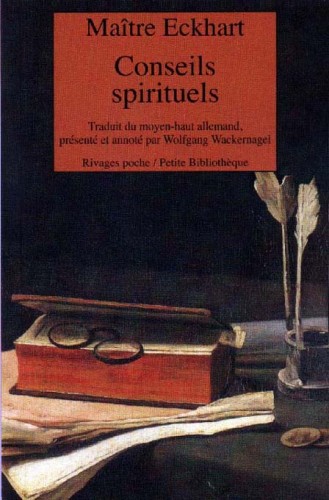 Si l’on en juge par les nombreux témoignages parvenus jusqu’à nous, les doctrines de Maitre Eckehart ont eu une grande répercussion dans les Pays-Bas. Cette influence s’expliquera notamment par le fait que ces contrées ont entretenu durant tout le moyen âge un commerce spirituel des plus intense avec Cologne et les provinces rhénanes.
Si l’on en juge par les nombreux témoignages parvenus jusqu’à nous, les doctrines de Maitre Eckehart ont eu une grande répercussion dans les Pays-Bas. Cette influence s’expliquera notamment par le fait que ces contrées ont entretenu durant tout le moyen âge un commerce spirituel des plus intense avec Cologne et les provinces rhénanes.
 del.icio.us
del.icio.us
 Digg
Digg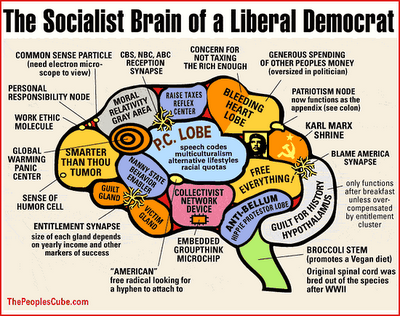
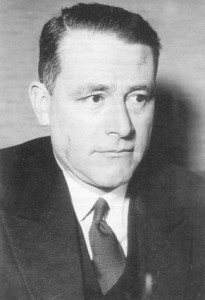 Carl Schmitt’s short book
Carl Schmitt’s short book 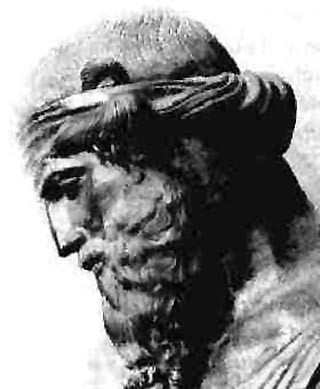
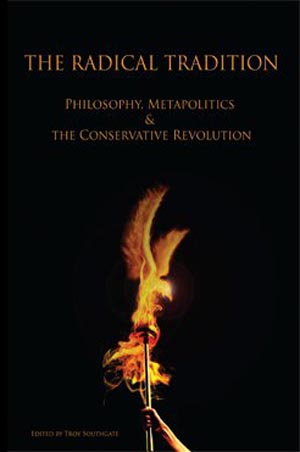

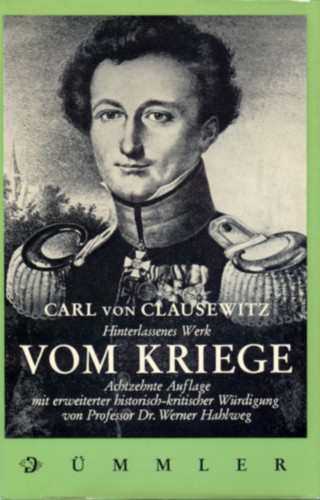
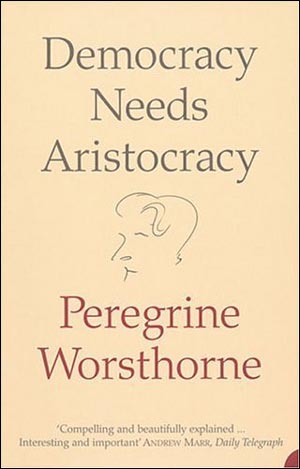
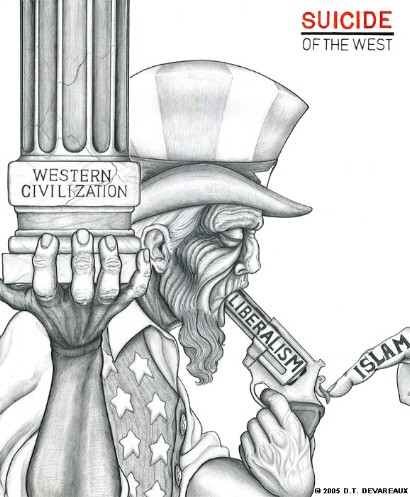
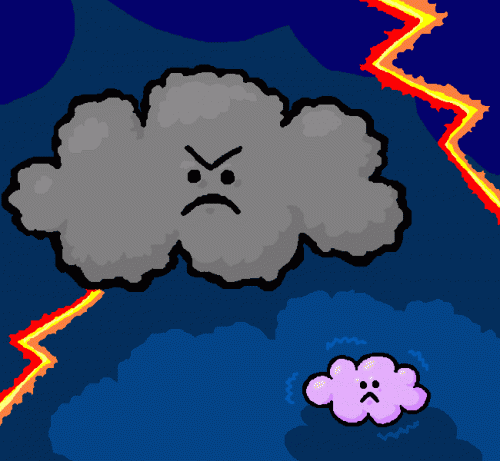


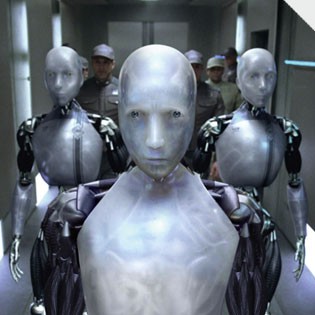 Last February, by way of an introduction, I put up a
Last February, by way of an introduction, I put up a 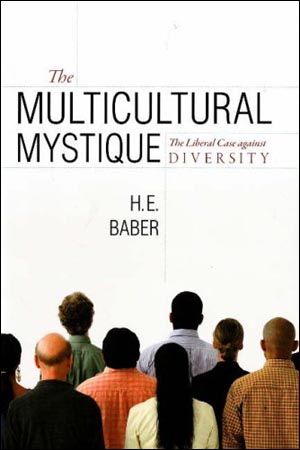
 Is het niet vreemd dat op de website van Amnesty International Vlaanderen
Is het niet vreemd dat op de website van Amnesty International Vlaanderen 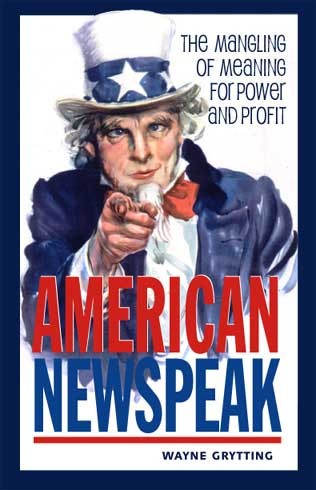 Cultuurrelativisme
Cultuurrelativisme Che
Che 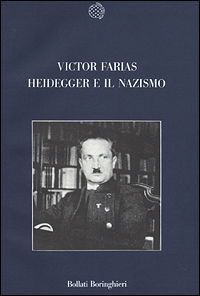

 Die State University of New York Press hat die englische Übersetzung des „portugiesischen Tagebuchs“ (Jurnalul portughez) von Mircea Eliade – er war von 1941-45 rumänischer Botschafter in Lissabon – veröffentlicht:
Die State University of New York Press hat die englische Übersetzung des „portugiesischen Tagebuchs“ (Jurnalul portughez) von Mircea Eliade – er war von 1941-45 rumänischer Botschafter in Lissabon – veröffentlicht: Evola hat 1942 „Il filosofo mascherato“, die Besprechung eines Buches von Maxime Leroy über Descartes’ deviantes Rosenkreuzertum und seine Rolle im Rahmen der Gegeninitiation, in „La Vita Italiana“ veröffentlicht. (Deutsche Übersetzung: Der Philosoph mit der Maske, in: Kshatriya-Rundbrief, Nr. 7, 2000) Schmitts „Leviathan“ besprach Evola bereits 1938 in „La Vita Italiana“ (nachgedruckt in zwei weiteren wichtigen italienischen Zeitschriften). Evola kommt im übrigen in Eliades Tagebuch laut Index nicht vor.
Evola hat 1942 „Il filosofo mascherato“, die Besprechung eines Buches von Maxime Leroy über Descartes’ deviantes Rosenkreuzertum und seine Rolle im Rahmen der Gegeninitiation, in „La Vita Italiana“ veröffentlicht. (Deutsche Übersetzung: Der Philosoph mit der Maske, in: Kshatriya-Rundbrief, Nr. 7, 2000) Schmitts „Leviathan“ besprach Evola bereits 1938 in „La Vita Italiana“ (nachgedruckt in zwei weiteren wichtigen italienischen Zeitschriften). Evola kommt im übrigen in Eliades Tagebuch laut Index nicht vor. 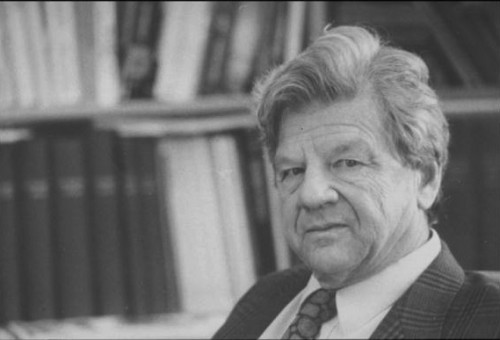
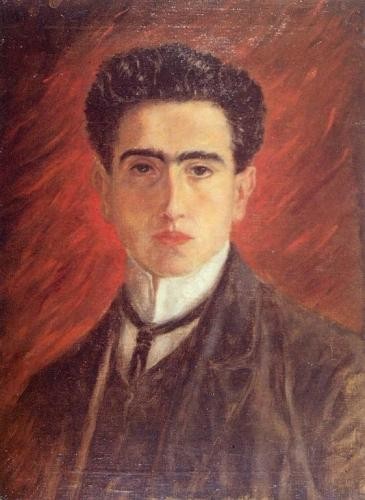
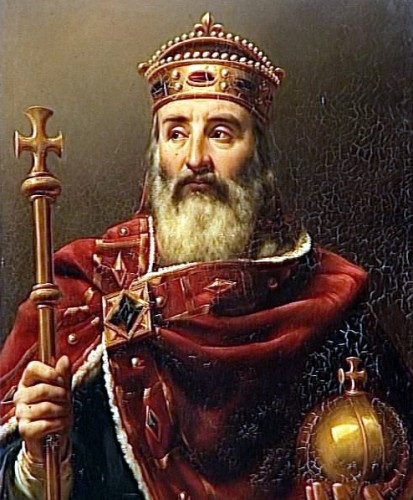
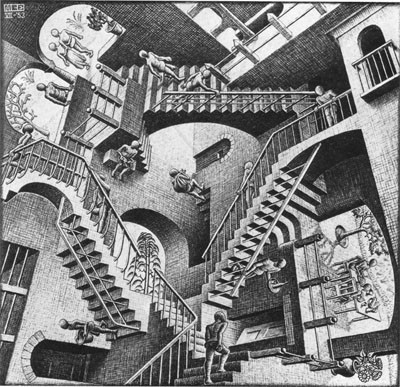
The Culture of Critique & the Pathogenesis of Modern Society
Ex: http://www.counter-currents.com/
Reinhart Koselleck
Critique and Crises: Enlightenment and the Pathogenesis of Modern Society
Cambridge: MIT Press, 1988
La politique, c’est le destin. — Napoleon
Koselleck’s Critique and Crisis (1959) is one of the great dissertations of the 20th-century German university system.
It cast new light not just on the past it re-presented, but on the present, whose own light informed its re-presentation.
This was especially the case with the potentially cataclysmic standoff between American liberalism and Russian Communism and the perspective it gave to Koselleck’s study of the Enlightenment origins of the Modern World.
How was it, he asked, that these two Cold War super-powers seemed bent on turning Europe, especially Germany, into a nuclear wasteland?
The answer, he suspected, had something to do with the moralizing Utopianism of 18th-century rationalism, whose heritage ideologically animated each hegemon.
1. The Absolutist Origins of the Modern State
Koselleck was one of Carl Schmitt’s postwar “students” and his work is indebted to Schmitt’s The Leviathan in the State Theory of Thomas Hobbes (1938).
Like his mentor, Koselleck saw modern ideologies, despite their atheistic rejection of faith, as forms of “political theology” that spoke to the faith-based heart that decides how one is to live.
In this sense, the self-proclaimed Enlightenment of the 18th century was a philosophical rebuttal to political Absolutism, whose institutional response to the breakdown of medieval Christendom occurred in ways that frustrated the liberal aspirations of the rising bourgeoisie.
In the century-long blood-letting that had followed the Protestant critique of medieval Catholicism, Europe’s ecclesiastical unity and its traditional social supports were everywhere shattered.
As the old estates broke down and old ties and loyalties were severed, there followed a period of anarchy, in which Catholics and Protestants zealously shed each others blood in the name of their contending truths.
In this sectarian strife — this bellum omnium contra omnes — where ecclesiastical authority ceased to exist and each man was thrown back upon his individual conscience, morality became a banner of war and the public observance of morality a justification for murdering Europeans with dissenting beliefs.
It was the advent of the Absolutist State system, philosophically anticipated in Hobbes’ Leviathan, that brought these bloody religious conflicts to a halt, establishing a peaceful basis to European life — by “privatizing” morality, secularizing authority, and depriving individual mentalities of political effect.
The neutralization of religious belief that came with the Absolutist secularization of the State would secure conditions requisite to the citizen’s peaceful pursuit of his private will or gain, as private ideals ceased to be obligatory duties and the State became “the artifact of atomized individuals.”
Absolutist regimes succeeded in this way in “reducing measures of contingency, conflict, and compulsion” to the status of differences of opinion — bare, in effect, of religious significance, as “external compulsion” imposed restraints on the individual’s “inner freedom.”
The historians’ designated Age of Absolutism and Enlightenment begins, then, with the Peace of Westphalia in 1648, which brought not just the Thirty Years War in the German-speaking lands, but all Europe’s religious wars to an end (except on the borderlands of Ireland and the Balkans) — and ends only with the advent of another European civil war, which opened with the liberal revolutions of 1776/1789 and closed with the English triumph over Napoleon in 1814.
History, though, rarely conforms to the tidy categories scholars make of it.
Unlike the Continent, England went from religious war to Absolutism and then to bourgeois revolution and finally to a bourgeois Restoration all in the course of a half-century (c. 1642–1688), experiencing an intense though only brief period of Absolutism.
England’s expanding maritime power, opened to all the world it dominated, had, in fact, merely a transitional need of Absolutism, for it would soon become the first implicitly liberal of the “modern” regimes.
Koselleck focuses on the longer, more pronounced Continental developments, treating England as a variant of the larger trend.
In his depiction, the Absolutist State system emerging after the Treaty of Westphalia was based on a transformation of political authority — which divided the “public sphere” into two sharply separate domains: That of political authority proper (the sovereign State) and that of society, conceived as a subaltern realm of individual “subjects.”
The subject’s moral conscience in this system was subordinated to the requirements of political necessity — what Hobbes called “reason.” This restricted morality to the social realm of private opinion, depriving it of political effect.
With Absolutism, the public interest, about which the sovereign alone had the right to decide, ceased to lay under the jurisdiction of the individual’s moral conscience.
The Continent’s new monarchical States — with Louis XIV’s France the model of the others — would govern according to a raison d’état (Staatsräson), which made no reference to religious considerations.
Law here was severed from special interests and religious factions, becoming part of a domain whose political decisions — ideally — transcended “Church, estate, and party.”
“To traditional moral doctrines, [Hobbes] opposes one whose theme is political reason.”
Persecuting churches and religiously bound social fractions were hereby forced to give way to the sovereign authority of the Absolutist monarch, who recognized no higher authority than God Himself.
As Absolutist peace took priority to faith, the individual subject — previously situated in a loose medieval hierarchy, imbued with certain corporate rights and responsibilities — was transformed into an apolitical subject.
He had, as such, to submerge his conscience to reasons of State — to reasons necessary for maintaining the peace.
This privatization of morality dictated by the State’s secularization was not directed against religion per se, but against a religious conscience whose political claims, in a period of general breakdown, threatened war.
What the Absolutist State did — and what Hobbes theoretically legitimated in the Leviathan — was to transform the individual’s conscience into a matter of “opinion,” of subjective belief, separate from politics — and thus from the political reasons of the State.
This was accomplished by making the public interest the prerogative of the sovereign, not that of the individual’s religious conscience, for the latter inevitably led to religious strife.
In this secular political system, State policy and laws became the sole concern of the sovereign monarch, who stood above religion, anchoring his laws not in a higher transcendence, but in State imperatives.
In Hobbes’ famous formulation: “Laws are made by authority, not by truth.”
Hereafter, State policy and laws would be legislated by reasons of State — not the moral conscience and not self-interest and faction. For the State could fulfill its function of securing peace and maintaining order only if individuals ceded their rights to the sovereign, who was to embody their larger welfare.
Contested issues were thereby reduced to differences of opinion that could be resolved by reasons of State.
Through Absolute sovereignty, it was possible again to create an internal realm of peace, separate from other Absolutist State systems, each of which possessed a similar peaceful interior, where the individual was free to believe whatever he wished as long as no effort was made to impose his “private” belief on the public, whether Catholic or Protestant.
This would keep religious fanaticism from trespassing on domestic tranquility and, at the same time, guarantee the State’s integrity.
Among Absolutist States, relations remained, of course, that of “a state of nature” — for each upheld and pursued policies based on their own rational sense of self-interest (raison d’état).
Conflict and war between Absolutist States were nevertheless minimized — not just by the fact that they accepted the integrity of the other’s moral conscience — but also by a sense of sharing the same Christian civilization, the same standards of significance and style, the same general, interrelated history that distinguished them from non-Europeans.
On this basis, the community of European States after 1648 grew into a family of sovereign powers, each respectful of the others’ domestic integrity, each of whose kings or queens shared the blood of other royal families, each of whose wars with other Europeans was governed by a jus publicum europaeum.
2. The Culture of Critique
It was the failure to comprehend the nature of the Absolutist State system (its avoidance of divisive political questions of faith and belief) that gave rise to the Enlightenment and its culture of critique.
For once the religious wars came to an end and authority was secularized, European society “took off.”
By the time Louis XIV died in 1715, the bourgeoisie, formerly an important but subordinate stratum of medieval European society, had become the chief economic power of an 18th-century society more and more dependent on its economic prowess. Made up of “merchants, bankers, tax lessees, and other businessmen” who had acquired great wealth and social prestige, this rising class (whose deism and materialism took “political” form in liberalism’s scientistic ideology) was nevertheless kept from State power and powerlessly suffered monarchical infringements on its monied wealth.
Resentful of State authority, the intelligentsia of this rising class took its stand in the private moral realm, which the Absolutist State had set aside for the subject and his moral conscience.
Through this breech between the public and the private, the chief ideologue of this rising bourgeoisie, John Locke, would step. His Essay Concerning Human Understanding – “the Holy Scripture of the modern bourgeoisie” — helped blur the boundary between moral and State law, as the former assumed a new authority and the distinction between the two diminished.
Pace Hobbes, Locke argued that bourgeois moral laws (now divorced from religion and anchored in rationalist notions of self-interest devoid of transcendental reference) had arisen in the human conscience, which the State had exempt from interference. As such, the citizen had a right to pass moral judgements on the State.
Such judgements, whatever the motive, eventually made State law dependent on the consent or rejection — the rule, in effect — of the bourgeoisie’s allegedly “objective” opinion.
In this situation, the bourgeois view of virtue and vice — its “religion of technicity” — took on a political charge, superseding the realm of private individual opinion, as it became “public opinion.”
At the same time, bourgeois critics favored the risk-free sphere of the unpolitical private realm, where they sought to dictate policy. Instead, then, of forthrightly challenging the underlying metaphysical principles of the Absolutist order, they framed their defining metaphysical identity (matters of faith — in this case their godless theology) in moral and economic terms devoid of political responsibility.
Bourgeois morality, not the State’s “reason,” proceeded in this way to take hold of the public — society — and set the standard for the “moral value of human action.”
This opened the way to a reconfiguration of the Absolutist relationship between morality and politics.
The public realm in Locke’s bourgeois philosophy was accordingly re-conceived as a social realm of individual consciences and this realm’s opinion as the “law” that was to bind the public.
Bourgeois morality, as such, not only entered, but soon conquered society, as its private views rose to that of public opinion.
Few, moreover, would be able to resist the pressure of its judgment.
“Reasons of State” were henceforth subject to the secular, calculating “reason” of the bourgeoisie — as “reason” ceased to be the avoidance of civil war and became the self-interest of the rationalist acting individual.
This made society increasingly independent of the State, just as State laws were increasingly subject to the “empowering” moral (and economic) judgments of society.
In the course of the 18th century, the bourgeois as citizen would assume, through his culture of critique, the “rank of a supreme tribunal” — ultimately passing judgment on the State (though doing so safely removed from the day-to-day imperatives of the political realm).
In England, following the oh-so Glorious Revolution of 1688 (a terrible, fateful year, with more to follow, in Irish history), the Whig bourgeoisie, through Parliament, became dominant, entering into an alliance with the constitutionally-bound monarch (William of Orange).
On the more religiously polarized continent, where Absolutist States had a greater role to play, the antithesis between State legislation and bourgeois secular morality (rooted in Protestantism’s critical essence) assumed a different, more antagonistic character.
This continental polarization of morals and politics — compounded by the growing social weight of the bourgeoisie and the discontent generated by its political disenfranchisement — grew in the course of the 18th century, as the bourgeoisie increasingly assumed the leadership of “society.”
Its moral critique of the State and of the ancien régime — a critique posed in secular and rationalist, rather than Christian terms — is what is known as the “Enlightenment,” that metapolitical “culture of critique,” whose light allegedly emanated from the bourgeoisie’s rational conscience (which was modeled in many ways on that of the Jews, for it was based on the dictates of money and its unpolitical affirmation of the private).
3. The Crisis of the Old Order
“When and whenever [men] are subjects without being citizens, they inevitably endow other concerns and pursuits—economic, social, cultural—with an independent and hence rival authority.” This was the great failing of Absolutism.
In such a situation, the voluntary associations of the bourgeoisie—Masonic lodges, salons, clubs, coffee-houses, academies, sociétés de pensées, the “Republic of Letters”—became rival centers of moral authority and eventually rival models of political authority.
The criticism of these bourgeois organs sought to “test” the validity or truth of its subject, making reason a factor of judgement in its process of pro and con.
Bourgeois judgements critical of the political system set off, in turn, a crisis threatening the existing State.
As scientific materialists, armed with a naive analytic-empiricist epistemology, such bourgeois critics waged their subversive campaign with no appreciation of existing political realities or the imperatives and limits these realities imposed. This would make their moral crusade unrealistic, Utopian, unconcerned with the “contingency, conflict, and compulsion” that occupies and defines the political field.
Their Utopian proposals (their anti-political politics) constituted, as such, no actual political alternative, based as they were on a purely formal, abstract understanding of the political realm, which it subjected to the individual’s moral conscience.
But once the private moral realm started to impinge on the political sphere of the Absolutist State, the State itself was again called into question.
First unconsciously and then increasingly consciously, the bourgeois Enlightenment applied its Utopian and ultimately hypocritical standards to the State, whose political imperatives were ignored rather than recognized for what they were—so as not to complicate its own geometrical schemes of reform.
The Enlightenment, it followed, was wont to see itself in moral terms, not political—not even metapolitical—ones.
This self-deceiving politics could only end in ideological excess and terror—for the sole way to realize its Utopian political theology would be by forcing others to accept and submit to it.
The result, Koselleck concludes, was the advent of the modern condition—this “sense that we are being sucked into an open and unknown future, the pace of which has kept us in a constant state of breathelessness ever since the dissolution of the traditional ständische societies.”
The turbulent “tribune of reason” bequeathed by the Enlightenment aimed, moreover, at every sphere of human endeavor—not just the Absolutist State, traditional Catholic Christianity, or the numerous corporate restraints inhibiting the market.
Everything historically given was, as such, to be re-conceived as a historical process that had to be re-directed, reformed, and re-planned, as the dictates of fate gave way to the rationalist obliteration of political aporia (i.e., the impasses or challenges posed by exceptional situations determined only by the sovereign).
Through its Règne de la Critique, the bourgeoisie (as prosecutor, judge, and jury) subjected the State to an enlightened conscience that debunked its “rationality” and increasingly advocated, or implied, its replacement.
With this rationalist critique of Absolutism came an unfolding philosophy of history—which promised a victory that was to be gained without struggle or war, that applied to all mankind, and that would bring about a better, more rational, and peaceful future—if only “reason” (i.e., bourgeois interests) was allowed to rule.
Through this critique, politics—the tough decisions fundamental to human existence—was dissolved into an Utopian project indifferent to the historical given. Everything, it followed, was subject to criticism, nothing was taboo—not the “order of human things,” not even life itself would be spared the alienation that came with the critic’s unpolitical reason.
Then, as the critic assumed the right to subject the whole world to his verdict, acting as “the king of kings,” criticism was “transformed into a maelstrom that sucks the present from under the feet of the critic”—for his criticisms amounted to an endless assault on the present in the name of a far-off, but allegedly enlightened future.
4. Modern Pathogenesis
At the highest level, Koselleck offers “a generic theory of the modern world”—one that seeks to explain something of our age to us.
In his view, criticism engendered crisis, calling the future into question.
The Enlightenment’s culture of critique could, however, only culminate in revolution—a revolution whose new order would privilege the rich and powerful (and, in time, the Jews).
By subordinating law to morality, ignoring the differences that divide men over the great questions of existence, the liberal State born of Enlightenment culture stripped sovereignty of its power.
Henceforth bourgeois morality became the invisible framework of the State, as sovereign authority was changed into an act of persuasion and reason—and the essence of politics (no longer the polemic over fundamental problems of human existence) became the non-political rule of a discursive bourgeoisie indifferent to matters of faith and desirous of a fate-less society without a sovereign State.
As social and political realities were indiscriminately mixed and subjected to the invisible opinion of the bourgeois public, based on an ostensively objective reason, everything failing to accord with that opinion became an injustice, subject to reform.
Society here assumed the right to abrogate whatever laws it wished, inadvertently establishing a reign of permanent revolution.
Refusing to recognize the State’s amoral (rather than immoral) character, the emerging bourgeois political system—with its culpablizing, but “value free” politics and its civil ideal taken as the universal destiny of all humanity—not infrequently had to resort to naked force to realize its Utopia: the terror and mass killings that followed 1789, the nuclear holocaust inherent in the Cold War, the on-going, unrelenting destructuration of the local and global today.
The consequence has been liberalism’s non-political State (whether in its 19th-century guise as a Night Watchman State or in its 20th-century Nanny State form). This State replaced politics with morality, tradition with planning, disagreements with a cold indifference to all that matters. It became thus a legal order, a Rechtsstaat, supposedly unattached to any constituting system of ascription or belief, and thus beyond any “exception” that might make visible the actual basis of bourgeois rule.
In this situation, where politics were negated and political problems were reduced to “organizational-technical and economic-sociological tasks,” the world was emptied of “seriousness” and turned into a vast realm of entertainment, where the bourgeois was allowed to enjoy the fruits of his acquisitions.
With liberalism, then, politics ceases to be a destiny and becomes a technique hostile to all who refuse its philistine philosophy of history—for the linear notion of progress inherent in this philosophy undermines and “reforms” everything that has historically ensured the integrity of white life.
Source: TOQ Online, Dec. 24, 25, & 26 2009